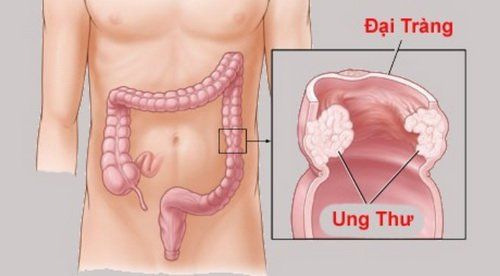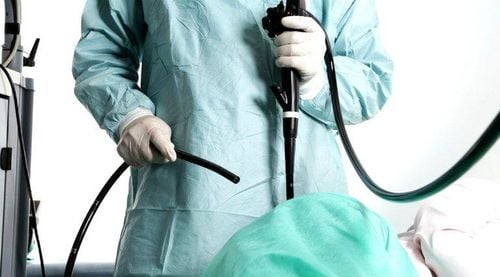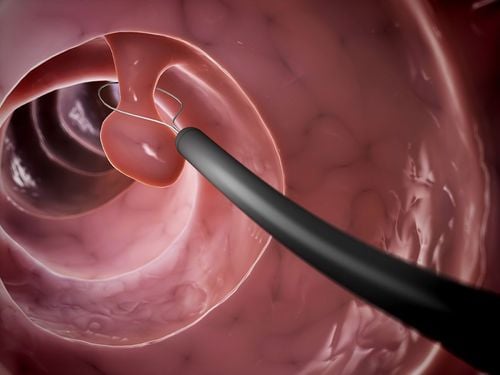This is an automatically translated article.
The article was professionally consulted by Specialist Doctor I Le Thien Quang - Internal Oncologist - Department of Medical Examination & Internal Medicine - Vinmec Da Nang International HospitalColorectal cancer is one of the most common cancers today, causing hundreds of thousands of deaths each year and the trend is increasing. Colorectal cancer can be completely cured if detected early, now there are many very effective colorectal cancer screening methods being applied, from non-invasive methods to methods. invasive method. Let's see what is colorectal cancer screening?
1. What is colorectal cancer?
Colorectal cancer is cancer that begins in the colon or rectum, and can be called colon cancer or rectal cancer depending on the location of the tumor.Colorectal cancer is one of the most common cancers in the world. Currently, there are about 1.8 million new cases worldwide and more than 800,000 deaths each year. In Vietnam, each year about 8,000 new cases of colorectal cancer are detected.
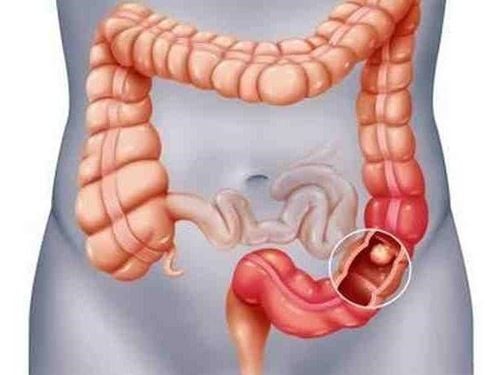
2. Manifestations of colorectal cancer
Like most other cancers, colorectal cancer often does not present with specific symptoms in the early stages, the symptoms are very nonspecific and easily confused with other common gastrointestinal diseases.Early manifestations of colorectal cancer such as:
-Digestive disorders:
Atypical and mixed with other disease symptoms: belching, slow digestion, bloating, mild abdominal pain, bowel disorders: or diarrhea, constipation, difficulty pushing... Symptoms persist, poor response to treatment. - Disorders of stool excretion:
Constipation or abnormal, prolonged loose stools Unformed stools Blood in stools - Systemic manifestations: Fatigue, unexplained weight loss
-Late stage: Palpable tumors, lymph nodes in many places, or manifestations of metastases.
3. What is colorectal cancer screening?
Most cases of colorectal cancer originate in colorectal polyps, and the average time for polyps to progress to cancer is about 5 to 15 years. Colorectal cancer, if detected early, has a cure rate of up to 90%, the earlier it is detected, the higher the chance of cure.Because the clinical symptoms are unclear and atypical, screening for early detection of colorectal cancer is very important to protect health.
When you have suspicious symptoms, or have one or more of the above risk factors, screening should be done.
Tasks when screening:
3.1. Examining and taking history, medical history The doctor will take a history, your medical history, if you have more risk factors for the disease, or have symptoms suggestive of the disease as mentioned above, the risk of disease. the higher the muscle.
Clinical examination: Assess general health, examine and detect suspicious signs such as abdominal mass, anorectal mass, lymph nodes in body positions...
3.2. Fecal occult blood test (FOBT) The basis of the test: Normally there is no blood in the stool, when there is blood in the stool, it is suggestive of an abnormality, possibly cancer, polyps or inflammatory ulcers. intestinal infection. When there is cancer in the colon, because the cancer is very angiogenic, the blood vessels are easily damaged when stool passes, so there may be blood in the stool. Blood in the stool can be detected with the naked eye. However, the case of blood in the stool is very difficult to detect. Therefore, if there is blood in the stool, the test will have a high sensitivity and suggestive value for making further investigations.
Fecal occult blood test helps screen and detect colorectal cancer early
Meaning of fecal occult blood test results:
Negative: No blood in stool, risk of colorectal cancer Very low colon, no further tests are needed, so retest every 2 years. Positive: There is blood in the stool, there is a problem in the intestines, especially in the colon such as (cancer, polyps, ulcerative colitis, hemorrhoids...), the risk of colorectal cancer is also high. therefore need to do other tests such as colonoscopy to make the diagnosis. Immunochemical fecal occult blood test (iFOBT)
Principle: determine the human hemoglobin protein present in red blood cells. Advantages: High sensitivity, specificity, little reaction to blood flowing from the high gastrointestinal tract such as stomach, duodenum (helps distinguish well blood flowing from the rectum and high GI tract sites) , do not have to abstain from food and vitamins when doing the test, just take 1 sample. Cons: Higher cost
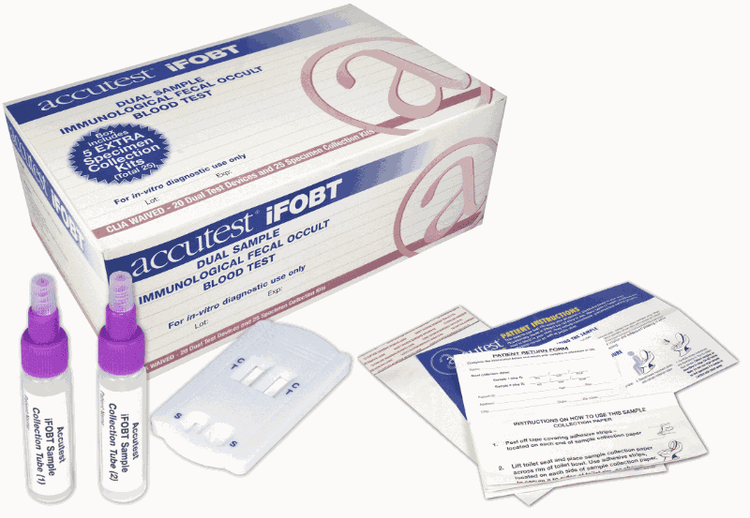
Purpose: Observe the entire colon and rectum through the endoscope with a camera, conduct a biopsy to take samples if in doubt, or conduct treatment to remove polyps when indicated. colonoscopy i: Before colonoscopy, the colon is required to be clean, without stools to facilitate observation. One day before the colonoscopy, you are asked to have a light meal, cleanse the colon by different measures such as medication, anal enema, enemas. Performed in endoscopy: Patients can choose between anesthesia or non-anesthesia endoscopy. Using a flexible endoscope about the size of a fingertip, with a camera attached, goes from the anus to the rectum, the entire patient's colon, the entire inner surface of the colon, rectum and rectal examination to diagnose and perform procedures if necessary, which can take from 10 to more than 30 minutes. Advantages: Allows viewing of the entire inner surface of the anus, rectum, and colon, helping to make a good diagnosis. Biopsies can be performed to take specimens or treat burning, removing polyps when indicated, a method that both helps diagnose and treat. The procedure is quite fast, causes few complications, can be performed many times Cons: Patients may feel some discomfort such as gas, bloating. May cause damage to the patient's gastrointestinal tract, requiring modern medical equipment and a team of professional doctors and technicians.
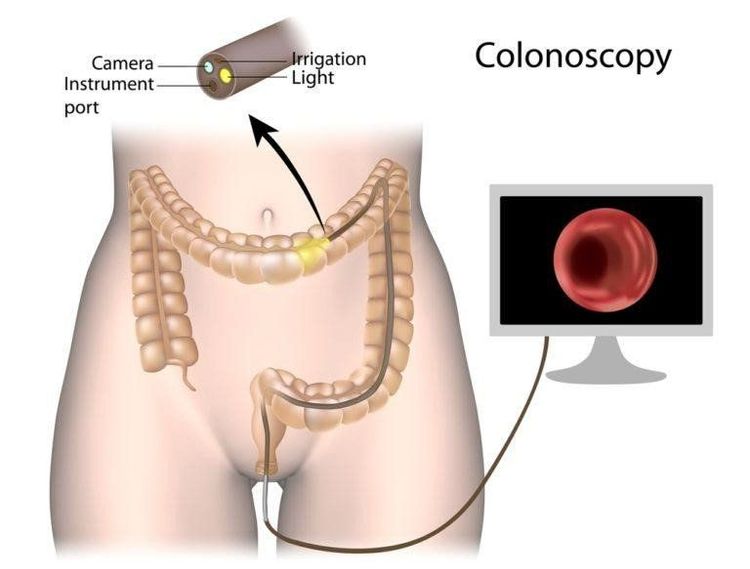
Vinmec International General Hospital is a large hospital chain, the first general hospital in Vietnam to meet global medical standards. Currently, Vinmec is a leading medical facility in the field of colorectal cancer screening and detection.
Vinmec International General Hospital is one of the hospitals that ensures modern equipment, a team of doctors, good and experienced staff with leading professors and doctors at home and abroad. Preventive, advanced tests allow the implementation of the most advanced colorectal cancer screening techniques.
Please dial HOTLINE for more information or register for an appointment HERE. Download MyVinmec app to make appointments faster and to manage your bookings easily.







